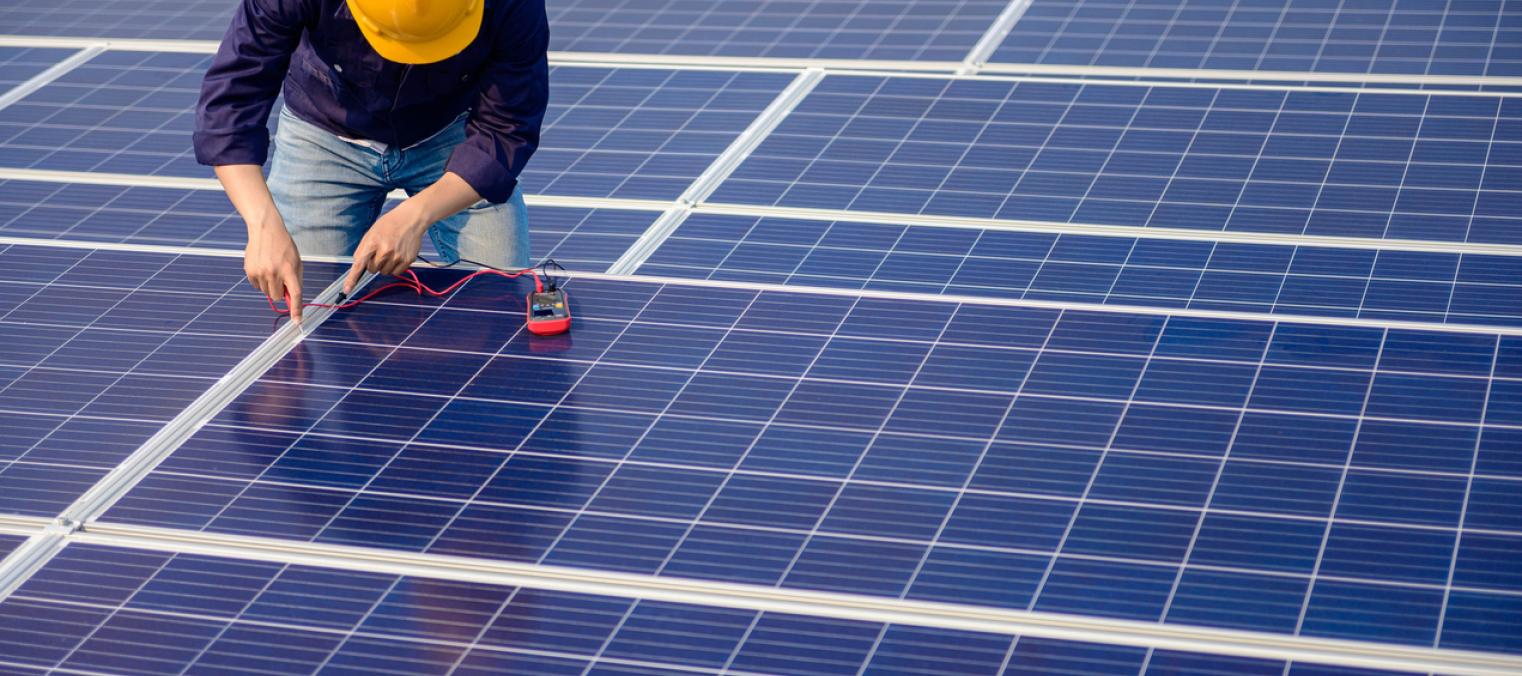




- India’s solar and wind energy sectors employ 1.64 lakh people as of FY22 – a 47 per cent increase from FY21.
- 84 per cent of these people are in the solar energy sector
New Delhi, 6 February 2023: Over 52,000 people were newly employed by India’s solar and wind energy sectors in FY22. This is eight times more than the number of people joining the two sectors in FY21. It takes the active workforce in project deployment roles in solar and wind energy sectors to 1.64 lakh as of FY22, according to an independent study released today by the Council on Energy, Environment and Water (CEEW), NRDC India (Natural Resources Defense Council India), and Skill Council for Green Jobs (SCGJ).
The CEEW-NRDC India-SCGJ study ‘India’s Expanding Clean Energy Workforce - 2022 Update’ also highlighted that 99 per cent of the new workforce (52,100 out of 52,700 workers), added in FY22, were employed in the solar energy sector. In contrast, the wind energy sector added just 600 new workers in FY22.
Dipa Bagai, Country Head, NRDC India, said: “The continued growth of renewable energy jobs shows the potential to achieve multiple priorities of the Indian government, including employment generation, the expansion of clean energy and robust economic development. The country’s ambitious renewable energy targets provide an opportunity to create a more equitable workforce while transitioning to a low-carbon economy.”
Dr Praveen Saxena, CEO of SCGJ, said: “SCGJ achieved a milestone of training more than 100,000 people in the renewable energy domain in FY22. With new technologies emerging, we at the SCGJ are bolstering our efforts to ensure that more training programmes are launched in the future which are both versatile and relevant as the renewable energy sector grows.”
Neeraj Kuldeep, Senior Programme Lead, CEEW, said: “India’s renewable energy sector continues to grow steadily and create employment opportunities. Our earlier studies have showcased the potential to employ 1 million people in the sector as India marches towards its 2030 ambitions. The skilling programmes must catch up with the new requirements arising from sectors such as solar module and battery manufacturing and hybrid projects. Further, state-level actors have an important role to play in mainstreaming skilling programmes and taking them to the grassroots to achieve a citizen-centric energy transition.”
India’s plan to meet 50 per cent of its cumulative electric power installed capacity from non-fossil fuel sources by 2030 is a leading step towards renewable energy (RE) deployment and carbon emission reduction in keeping with its net-zero by 2070 goals. The RE sector was visibly resilient after the Covid-19 pandemic and reached a cumulative installed capacity of 120 GW, excluding large hydropower, at the end of 2022.
The CEEW-NRDC India-SCGJ study introduces employment and skilling insights from deploying a standalone battery energy storage system (BESS) as well as updated training and skilling numbers from SCGJ across the RE and green jobs’ sectors. For better-skilled green jobs, it recommends mainstreaming industry-relevant renewable energy courses at universities and premier institutes to create highly skilled workforces for emerging sectors like solar module manufacturing. Special attention should be given to improving the participation and retention of women in skilling courses to increase their representation in the clean energy workforce. For India to achieve an inclusive energy transition, the study suggests bringing the existing workforce in conventional energy sectors towards appropriate career trajectories by upskilling, reskilling and possibly re-certifying competence.
The study ‘India’s Expanding Clean Energy Workforce - 2022 Update’ can be accessed here.
Contact: Riddhima Sethi (CEEW) – [email protected]; +91 99020 39054 / [email protected]